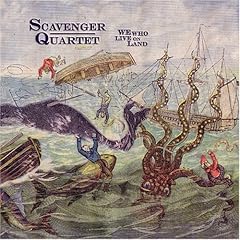No-one really knows how the song known to millions as "Popcorn" originated. Yes, ancient people, but which ones? Even native American Indians who have performed the song for ages admit that the Great Elders brought them the song. Who were these Great Elders? Indian ancestors? An ancient, forgotten race? Some have even interpreted this to mean that space aliens gave mankind the tune, claiming that no human artistry could produce a song so catchy. In any case, when Western settlers first arrived in America, they heard a version that sounded something like this:Cab City Combo - IndiancornExplorers quickly took the song back to Europe, where it became a drawing-room favorite. The song was known by many names at first, but the phrase "Popcorn," a phonetic version of the Indian words, become the most commonly used.Trios corpo di Bacco: "Popcorn" (European folk version)Meanwhile, rural American musicians, upon hearing the Indian versions, started performing the song on folk instruments. It became a hillbilly standard.Tom Adams "Popcorn" (banjo version)GlasBlasSing Quintett: "Popcorn" (jug-band version, excerpt)In Europe, it was spreading from the drawing rooms to the most elegant ballrooms and concert halls. The king of Luxembourg demanded it played at all royal festivals.Boston Pops: "Popcorn" (orchestral version)As the 20th Century dawned, New Orleans-based musicians playing a new style called "jazz" adopted it for trumpet. Supposedly, Louis Armstrong would play it, but only after smoking far too many reefers.Vincent Malone: "Popcorn" (very retarded trumpet version)Performances of the song were getting increasingly upbeat and danceable. In the Big Band era, it was an a oft-requested dance orchestra number, one of those "songs that got us through World War II."Tokyo Kosei Wind Orchestra: "Popcorn"By now, a snack (made from corn kernels) named after the song was becoming popular, and in the '50s and '60s, the youth were going mad for a new hard-driving style called "rock'n'roll." Once again, "Popcorn" was said to be the driving influence behind the movement. Even as greasy-haired rockers proclaimed "Popcorn is the MOST, daddy-o," politicians were investigating the song's powerful hold. Some even declared it to be a Communist plot. But that didn't stop it from being the soundtrack to countless beach parties, toga parties, hullabaloos, and shindigs.Treble Spankers: "Popcorn" (surf version)
The invention of the synthesizer brought the song a new burst of popularity in the late '60s and early '70s. One electronic music pioneer, Gershon Kingsely, even gave himself writing credit when the song appeared on albums by his First Moog Quartet. Previously, it had been considered folkloric, "traditional."
First Moog Quartet: "Popcorn" (Moog version)
The '80s and '90s brought r'n'b, rap, techno, and reggae dancehall into the clubs. Not surprisingly, "Popcorn" was considered the inspiration: Afrika Bambatta insisted that "Popcorn" was the blueprint for hip-hop. In Chicago, clubs would play the song over and over for as long as six hours each night, waiting for house music to be invented.
RIAA: "Here Comes The Hot Butter" (Ini Kamoze's "Here Comes The Hot Stepper" vs Hot Butter's electro version of "Popcorn")
Even Britney Spears has the song to thank for one of her biggest hits:
Master Cylinder: "Oh Baby, More Popcorn"
"Popcorn" is, of course, still poppin' to this day. This was only a very rough sketch of the song's development. Hopefully, the recently announced Harvard University Department of Popcorn Studies will shed further light on the immortal tune.
(The preceding work of fiction was inspired by the amazingly thorough Popcorn-Song website, which details everything you need to know about the song. WFMU's Popcorn page doesn't have much info, but it does have alot of mp3s.)
 Yeah, yeah, I know: everybody plays air-zither along with their favorite 'zither heroes,' they even play the Zither Hero video game, the zither-bass-drum lineup has been the standard for decades, and yet here we are again, posting another zither album. We're so damn trendy. I apologize, because I realize that our culture's obsessions with the zither has made so many other stringed instruments unfairly obscure. Perhaps other instruments have potential, but no-one knows because they're considered uncool? Like the "guitar," a six-stringed instrument of Spanish origin, whose strings are strummed or plucked by hand. Since it's held in the hands instead of being laid out on a table like the zither, it's sure to draw guffaws from the too-hip. Who knows, maybe in some bizarro-world alternate universe, it's the guitar that's the most popular. Nevertheless, this album of fun, peppy, all-instrumental Euro-cheese is another example of why all peoples of the world hail the zither as the King of All Instruments. Zesty percussion, accordion, sleazy electric organ and cool vibraphones add to the belated Oktoberfest (Decemberfest?) festivities.
Yeah, yeah, I know: everybody plays air-zither along with their favorite 'zither heroes,' they even play the Zither Hero video game, the zither-bass-drum lineup has been the standard for decades, and yet here we are again, posting another zither album. We're so damn trendy. I apologize, because I realize that our culture's obsessions with the zither has made so many other stringed instruments unfairly obscure. Perhaps other instruments have potential, but no-one knows because they're considered uncool? Like the "guitar," a six-stringed instrument of Spanish origin, whose strings are strummed or plucked by hand. Since it's held in the hands instead of being laid out on a table like the zither, it's sure to draw guffaws from the too-hip. Who knows, maybe in some bizarro-world alternate universe, it's the guitar that's the most popular. Nevertheless, this album of fun, peppy, all-instrumental Euro-cheese is another example of why all peoples of the world hail the zither as the King of All Instruments. Zesty percussion, accordion, sleazy electric organ and cool vibraphones add to the belated Oktoberfest (Decemberfest?) festivities. A1 Ramona
A1 Ramona








